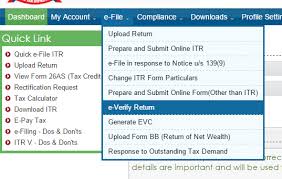Capital markets regulator Securities and Exchange Board of India (SEBI) is planning to take a number of steps to deepen it, including forcing thousands of non- or poorly-traded companies to delist and introducing more trading instruments, especially in the commodity space.
 After releasing a consultation paper on peer-to-peer (P2P) lending last week, Reserve Bank of India (RBI) has started meeting some leading players in the sector. The founder of a leading P2P lending platform, who met officials of RBI’s Department of Non-Banking Regulation on Wednesday, told FE on the condition of anonymity that the central bank is gearing up to come out with final guidelines for P2P lending platforms by the end of the current calendar year.
After releasing a consultation paper on peer-to-peer (P2P) lending last week, Reserve Bank of India (RBI) has started meeting some leading players in the sector. The founder of a leading P2P lending platform, who met officials of RBI’s Department of Non-Banking Regulation on Wednesday, told FE on the condition of anonymity that the central bank is gearing up to come out with final guidelines for P2P lending platforms by the end of the current calendar year.
He also said that money laundering and interest rate are two of the main areas that the RBI is focusing on while framing the final guidelines for the sector. “It seems RBI is keen on capping the rate interest that a P2P lender can charge at the same level as that for non- banking finance company micro finance institutions (NBFC MFIs),” he said.
As per current RBI regulations, the maximum rate of interest that an NBFC MFI can charge is the lower of 10% more than its cost of funds and 2.75 times of the base rate of the top five commercial banks.
“While money laundering shouldn’t have been a big concern, given that draft guidelines have mandated that all transfer of funds happen directly from the lender’s bank account to that of the borrower, the unearthing of a few ponzi schemes in the P2P sector in China seem to have made the RBI more cautious,” the P2P lending platform’s founder added.
Post May 31, which is the deadline set by RBI for suggestions and comments on the regulations, it will work on the final guidelines and seems keen on releasing them by the end of the year, he added.
According to P2P Finance Association, the global P2P market almost doubled last year and has crossed the £5 billion mark.
“Although nascent in India and not significant in value yet, the potential benefits that P2P lending promises to various stakeholders and its associated risks to the financial system are too important to be ignored. The Reserve Bank has therefore found it necessary to put out this discussion paper to elicit public opinion and views of the various stakeholders on the future course of action having regard to the current legal and regulatory framework in place to regulate the business of financial intermediation,” RBI noted in the consultation paper.
It has also proposed a minimum capital requirement of R2 crore for P2P NBFCs and is intent on restricting such entities to just companies, thereby barring proprietorships, partnerships and LLPs.






